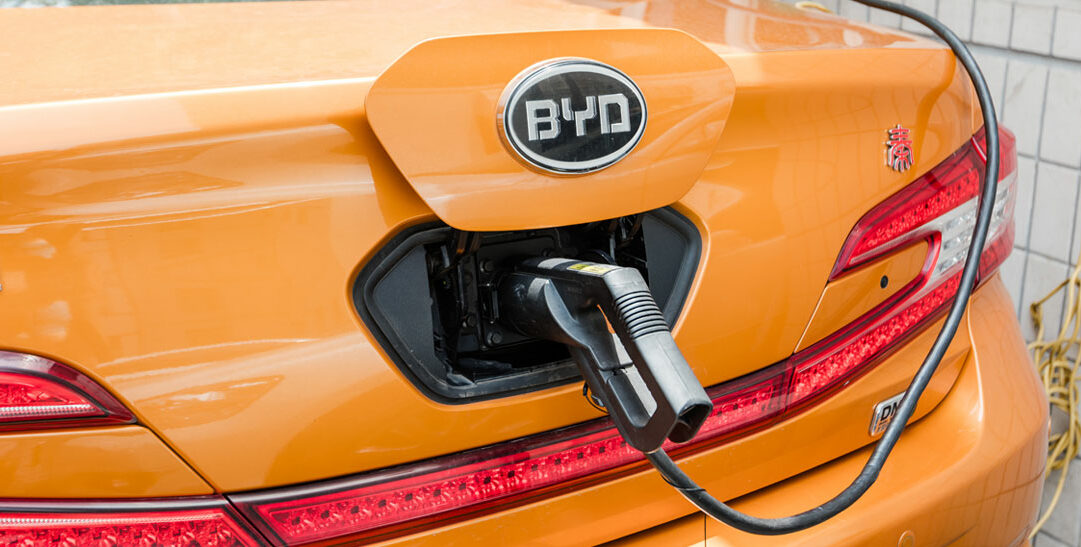China wants to dominate the Indian electric car market

Chinese companies like BYD want to take over India's electric car market, and they could replicate the moves of smartphone makers. All the details (and geopolitical implications)
On October 31, the Chinese electric vehicle company BYD Auto opened its first showroom in Chennai, one of the most important cities in India, where it has been operating since 2016.
THE AMBITION OF BYD
BYD is not a well-known company outside of China, but it should be kept an eye on: it is funded by Berkshire Hathaway, the holding company of multibillionaire entrepreneur Warren Buffett, for example, and in the first six months of 2022 it sold more cars. Tesla's electric. BYD, however, has a great ambition: to control at least 40 per cent of India's undeveloped electric vehicle market by 2030. India is the third largest economy in Asia and the second largest country. populous on the continent.
THE ADVANTAGE OF CHINESE ELECTRIC CARS
According to Quartz , BYD could lead the way in India for other Chinese electric car makers, such as XPENG or NIO. An anonymous executive of an Indian electric vehicle company explained to the newspaper that "in a developing electric market, Chinese operators are in a better position than their Indian counterparts" because "the Chinese have already tackled the problem of 'economic accessibility of electric vehicles thanks to a large national production ecosystem, which offers them leverage not only in the smartphone sector, but also in various other sectors ”.
REPLYING THE SUCCESS OF SMARTPHONES
The comparison with smartphones is not accidental: Chinese companies could in fact conquer the Indian market for electric cars as they have already done with that of phones. The top five most popular smartphone brands in India are Xiaomi (19 percent), Samsung (19), Vivo (17), RealMe (16) and Oppo (11): with the exception of Samsung, South Korean, all others are Chinese. . While Chinese companies control about 70 percent of the Indian market for these devices, the share of domestic brands is just 1 percent.
When in 2014 Oppo, Vivo and other Chinese brands entered India – the second largest smartphone market in the world, after the United States – they soon marginalized local competition. The New Delhi government has tried to develop Indian manufacturing production, but with little success.
The approach of these technology companies, made not only of import but also of manufacturing and assembly directly in India, could be replicated by the manufacturers of electric vehicles. BYD, for example, procures components from the outside but then assembles the cars for sale in India in India, because the taxes on imports of finished vehicles are high.
THE CHINA-INDIA GAP ON ELECTRIC CARS
China has been investing in electric mobility and in the creation of an industrial and infrastructural system for a long time: already in 2018 the electric cars sold in the country exceeded those sold in the world combined. In India, however, these types of cars are worth less than 1 percent of the total. By 2030, however, the country wants 40 percent of buses, 30 percent of private cars and 70 percent of commercial vehicles to be electric.
THE PRICE AND THE TESLA PROBLEM
However, electric cars are having difficulty spreading in India due to their cost, which is on average higher than that of petrol or diesel vehicles. The price gap is significant: $ 18,000 versus $ 6900.
About 75 percent of cars sold in India are priced around $ 10,000 – roughly half the average selling price in China, and just a quarter of that in the United States.
The American Tesla has long shown that it has a strong interest in the Indian market for electric vehicles, given the large population. According to analysts, however, even the company's cheapest model – the Model 3, over € 57,000 – would be appealing to only 1 percent of Indian consumers, the wealthiest ones.
GEOPOLITICS OF ELECTRIC CARS
After the one on 5G and the one on semiconductors , the technological war between the United States and China could move towards electric and hydrogen vehicles.
The Chinese sector has grown a lot and manufacturers such as NIO and BYD have also made a name for themselves abroad. A competition between Washington and Beijing on the export of electric cars, which by 2030 should represent a third of new cars sold worldwide, cannot therefore be ruled out.
In 2021, China – the largest automotive market in the world – exported over half a million electric vehicles, more than double the year before. However, around a third of China's exports to Europe consisted of Chinese-owned European brands such as Volvo; Chinese brands (such as BYD, for example) accounted for just 2 percent.
Moreover, almost half of the exports concerned Tesla models produced in China; finally, the remaining 14 per cent consisted of joint ventures between European and Chinese companies.
This is a machine translation from Italian language of a post published on Start Magazine at the URL https://www.startmag.it/smartcity/cina-india-auto-elettriche/ on Sun, 06 Nov 2022 07:02:09 +0000.
